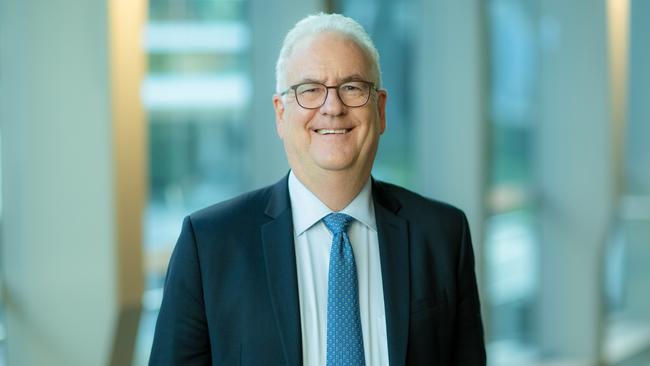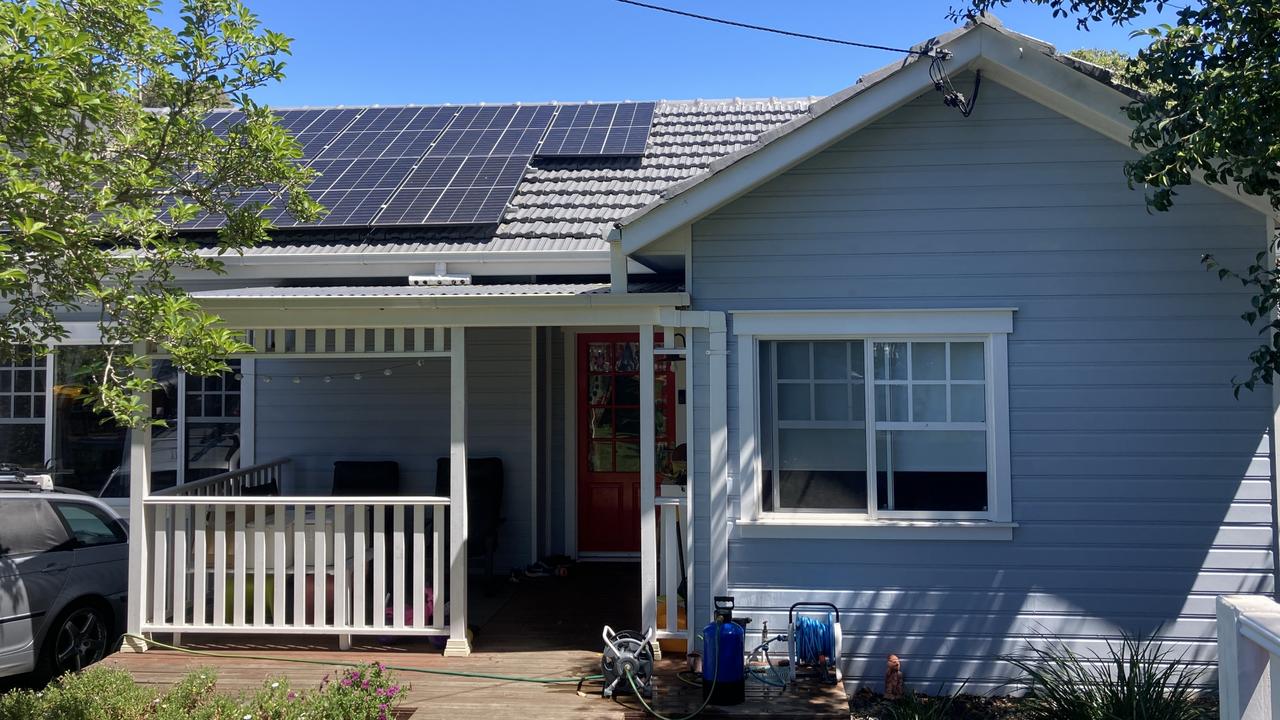AGL Energy accuses Mike Cannon-Brookes of making false claims
AGL Energy chief executive Graeme Hunt has accused Mike Cannon-Brookes of making false claims about the company’s demerger plans.

AGL Energy chief executive Graeme Hunt has accused Mike Cannon-Brookes of making false claims about its demerger as tensions mount between the two sides over a controversial split of the 180-year-old power giant.
Mr Cannon-Brookes has amassed a 11.28 per cent stake in AGL and has started lobbying big investors to vote against a plan to divide retail and power generation assets at a company meeting on June 15, arguing keeping the company intact will deliver more value for shareholders.
“I do think it would be rather odd for me to stand up here today and not address the recent commentary following the initial substantial shareholder notice … and some of the false claims being made as part of the justification for the position it has taken on the proposed demerger,” Mr Hunt told the Macquarie conference in Sydney on Thursday.
He said Mr Cannon-Brookes had claimed AGL had not invested in renewable energy, banks were unlikely to provide financing and it was out of step with its peers in dealing with climate change. Mr Hunt returned fire, saying shareholders should “focus on the facts”, including AGL’s renewable and battery portfolio of 2350 megawatts, that it was supplying some of the lowest cost generation in the power grid and was already announcing faster coal closure dates. Australia’s biggest electricity supplier had hoped to receive court approval for its scheme documents on Thursday so it could share details of the proposed company split with shareholders.
However, a protest motion was lodged by shareholder Joshua Ross over whether coal and climate risks were sufficiently detailed in AGL’s scheme documents, potentially delaying the scheme booklet being approved.

Mr Ross is a former analyst with Watermark Funds Management who now runs ticketing agency Humanitix, partly funded by Mr Cannon-Brookes‘ Atlassian Foundation.
Speculation had surfaced on Thursday ahead of the Supreme Court hearing that Mr Ross was tied to Mr Cannon-Brookes’ family investment vehicle Grok.
The billionaire rejected the link, while supporting Mr Ross for challenging the company split. “It’s not surprising that shareholders and other interested parties are expressing concern at AGL’s flawed demerger plan alongside Grok,” a Grok spokesman said. “We have already seen a number of institutional shareholders publicly push back. While we applaud all efforts to defeat the demerger, Grok has no association with Mr Ross’ appearance at the scheme hearing today.”
Supreme Court judge Ashley Black gave Mr Ross until Thursday evening to tender any arguments against the demerger and the court will reconvene on Friday to discuss the issues, setting up a potential delay for AGL to send the scheme booklet.
The Atlassian co-founder wants to strip coal from AGL’s portfolio much earlier than planned closure dates. Mr Hunt offered an olive branch on Thursday by saying AGL was open to faster shutdown dates.
AGL has announced a plan to close the doors of the Bayswater coal plant in NSW’s Hunter Valley up to five years early, by 2030, while Victoria’s Loy Yang A facility faces the axe from 2040, ahead of its expected retirement in 2048.
“We have announced earlier closure dates for Bayswater and Loy Yang A. However, these revised closure dates are not the end of the story – Accel will continue to challenge those closure dates and look to see how they can improve on this should the system be able to accommodate this in an orderly and responsible way,” Mr Hunt told the conference.
Bayswater will likely shut its doors by the 2029 financial year, UBS said on Thursday, with AGL’s share price facing “potential downward pressure” if the vote to demerge fails. UBS lifted its wholesale electricity price forecasts by 25-28 per cent over the 2023-25 period but expects only modest AGL earnings upgrades over 2022-23 given it has hedged most of its near-term wholesale price exposure.
Investors have been waiting for the scheme documents, given relatively scant details on how the restructure will deliver more value than remaining as a single, standalone company.
It will detail the two companies’ strategies, growth pathways along with capital and governance structures in addition to an independent expert’s report from Grant Samuel that backs the deal.
The demerger needs approval from 75 per cent of shares voted to proceed.
AGL also said surging wholesale electricity prices across NSW, Victoria and Queensland will invariably flow through to higher retail household bills as coal and gas costs bite.
“Clearly, wholesale electricity prices in a number of states are at a much higher level than they have been previously. And that will need to feed through to have an impact on retail pricing,” Mr Hunt said.
“We’ve also seen markets where there is not a plan at a kind of global macro level. I’ve talked a lot about the need for a glide path to guide the transition.”
AGL rose 2.3 per cent to $8.42.






